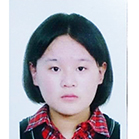供稿单位:互联网 责编:本站编辑 浏览: 0 次
In TOEFL Oral English task 3, 4, 5 and 6 candidates are required to listen to conversations, lectures etc .Hence, listening is a skill that should be learned before they take the test and it is something that needs to be practiced a lot. Excellent listening ability is a skill that can be acquired with extensive practice and diligence. Below are some essential methods that candidates can do before start doing
要学会精听
Intensive listening involves listening to more detailed analysis of the language used, listening for specific information and finding the answers to specific questions. For example, after listening to a lecture about a person’s favorite place, students should acquire the answer to this question "Where is the speaker’s favourite place?" Students should listen for the particular response of this question. On the other hand, the students should also hear if the speaker generally has a positive or negative opinion of his/her favorite place? This would practice a skill that is listening for gist, getting a general feel for the text.
Intensive listening is also used to do detailed study of a language point; an example is "What adjectives does the speaker use to describe his/her favorite place?" Students should listen to how the speaker describe his favorite place . And also, listen and follow the transcript in order to identify a certain grammar or vocabulary point is a further example of intensive listening.
要练听写
Note taking is a practice of recording information that can be captured from an oral discussion at a meeting, or a lecture. One common format that should be learned for note taking is shorthand or abbreviation which can allow large amounts of information to be put on paper without using a huge amount of time such as "etc." for etcetera, "no." for numbers. This method will allow students to write more information without writing the whole word thus can help them save some time. Using symbols such as ( > ) for more than, greater than, or ( < ) for less than are also very useful in writing notes. Information from the notes are necessary for students to reflect the ideas and information about the things they had heard.
必须要概述,大意Summarize
After listening intensively and taking notes , students should learn to summarize all the things that he/she had heard. In order to effectively summarize, students need to decide what information needs to be deleted or substituted and what information to keep. To do this they need to choose which parts of what they heard are important, trivial and repetitive. Students need to be able to synthesize material, prioritize pieces of information, and organize some concepts, topics and details to be able to summarize everything they have heard. Excellent summary will let the student organize all the information he/she had heard.
课程推荐
| 课程名称 | 上课地点 | 上课时间 | 查看课程 |

热门文章
- 托福口语考试题型解析 06/11
- 托福口语27大问题句式11/19
- 托福口语法则介绍 07/15
- 备战托福口语独立任务题目的“捷径”06/26
- 托福口语10大问题句式 你Chinglish中招...05/09
- 2014上半年托福听力考情分析07/07
- 2014年5月托福听力考试考情分析06/06
- 2014年4月托福考试听力考情分析05/09
- 2014年季度托福听力考情梳理04/15
- 托福听力2013年度全年考情回顾及备考指...02/10
- 2014上半年托福口语考情分析07/07
- 2014年5月托福口语考试考情分析06/06
- 2014年4月托福口语考情分析05/09
- 2014年季度托福口语考情分析04/15
- 帮助你积累托福词汇的方法02/24
- 托福阅读过关三招之阅读峰:篇章定...09/15
- 托福阅读过关三招之更上一层楼:段落找...09/15
- 托福阅读过关三招之阅读童子功:逻辑关...09/15
- 2014上半年托福阅读考情分析07/07
- 托福阅读高分必备五大利器07/02
- 2014上半年托福写作考情分析07/07
- 托福写作思维:结果优先07/02
- 2014年5月托福写作考试考情分析06/06
- 2014年4月托福写作考情分析05/09
- 2014年季度托福写作考情分析04/15



























